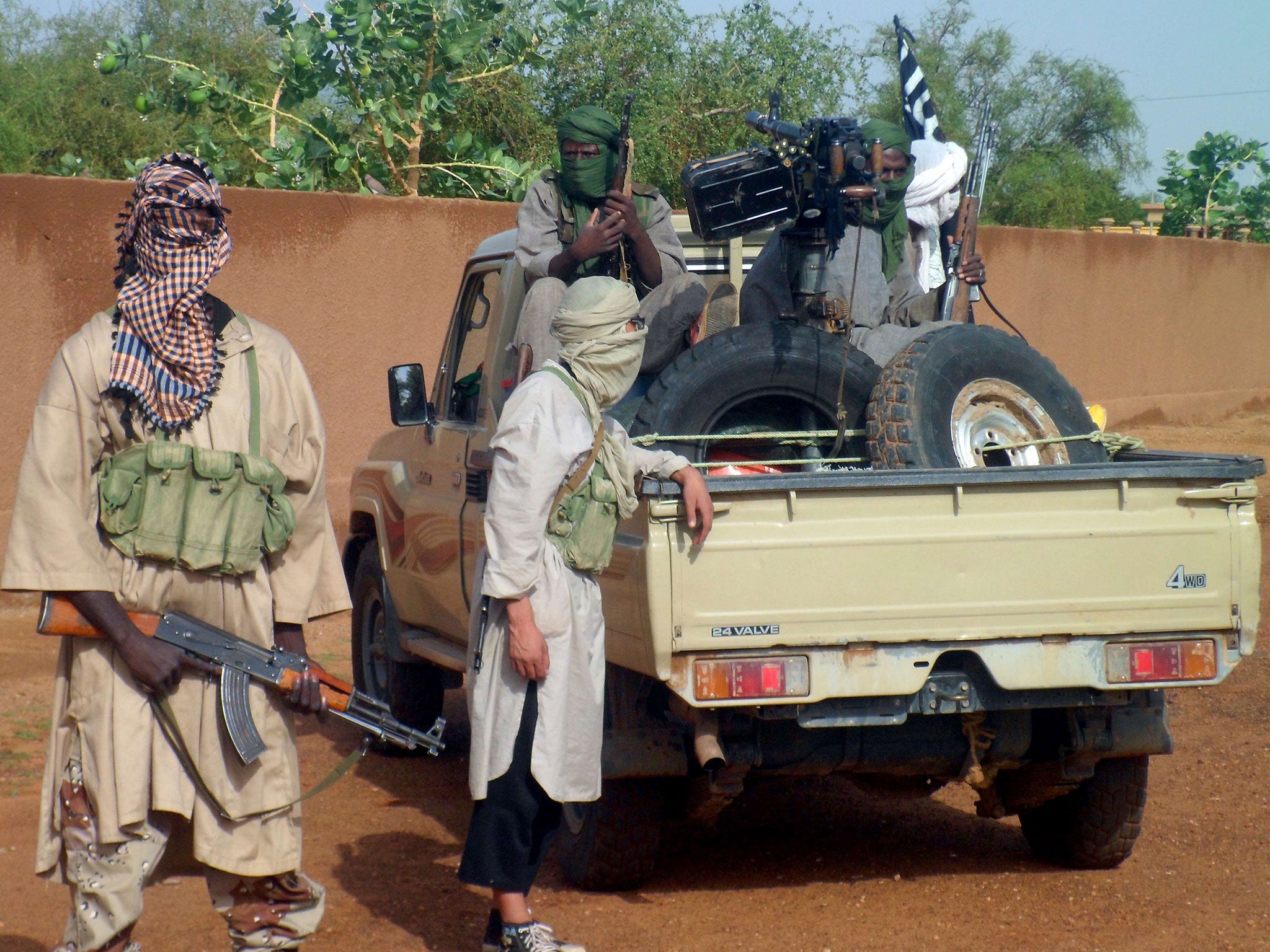Unmarried couple stoned to death in Mali for breaking 'Islamic law'
Al-Qaeda's affiliates imposing brutal punishments as insurgency intensifies

An unmarried couple has been stoned to death by jihadis in Mali as groups linked to al-Qaeda intensify a bloody campaign to establish an Islamic state.
An official said local residents in Taghlit, Kidal region, were invited to take part in the public punishment for allegedly violating “Islamic law”.
“The Islamists dug two holes where they put the man and the woman who lived maritally without being married,” he told AFP. “They were stoned to death.
“Four people threw stones at them until they died.”
Tuesday’s execution is the first reported stoning in the west African nation since France launched an intervention to drive Islamists and separatist Tuareg rebels back from northern regions in 2013.
It came shortly before France’s new President Emmanuel Macron visits Mali on his first foreign tour, where he is due to meet French troops fighting insurgents throughout lawless swathes of desert in the north.
Members of al-Qaeda affiliate Ansar Dine previously stoned a couple accused of having children outside of marriage to death in nearby Aguelhok in July 2012.

An initially successful counter-offensive saw key cities including Timbuktu and Gao brought back under government control, following months of extremist rule that saw anyone breaking an imposed version of Sharia law brutally punished with whippings and amputations.
Despite the deployment of 11,000 UN peacekeepers since France’s intervention, Islamist groups have been re-gaining strength in recent months, launching a series of attacks on the military as they push south.
At least one peacekeeper killed in an assault on an army base earlier this month, following more than 300 reported deaths in militant attacks since the start of 2017.
The latest large-scale operation was claimed by Jama’at Nusrat al-Islam wal-Muslimin (Group for the Support of Islam and Muslims or al-Qaeda in Mali), a newly formed alliance of jihadi groups including al-Qaeda in the Islamic Maghreb, al-Mourabitoun, Ansar Dine and the Macina Liberation Front.
The UN Security Council condemned the attack on its Minusma mission in Timbuktu, calling it a potential war crime and demanding those responsible are held accountable.
“The members of the Security Council expressed their concern about the security situation in Mali,” a statement said.
“They urged the Malian parties to fully implement the Agreement for Peace and Reconciliation without further delay.”
The peace deal was signed two years ago in the hope of stopping successive uprisings by ethnic Tuareg rebels who launched an advance in 2012, bolstered by the free flow of militants and weapons from the Libyan civil war.
But the separatist rebellion was hijacked by powerful Islamist groups, who turned on Tuareg militias and pushed them out of their major cities, and now refuse to negotiate with their rivals or the government.
Mali's parliament has extended a state of emergency until October in response to the renewed insurgency, handing increased powers to security forces and restricting public gatherings.
The killings have made Mali the world’s deadliest country for peacekeepers, while human rights groups have warned of a “deepening security vacuum” increasing suffering and displacement for civilians already facing widespread poverty and starvation.
“The insecurity has undermined efforts by the Malian government and its international partners to strengthen the rule of law and deliver basic health care, education, and humanitarian assistance,” Human Rights Watch said in its 2017 world report, which also warned of “arbitrary arrests, executions and torture” by state security forces.
Militant attacks have spread into Burkina Faso and Cote d’Ivoire, while Islamists have also launched terror attacks in the southern capital of Bamako, where 20 hostages were killed at the Radisson Blu hotel in November 2015.
Al-Qaeda-linked groups have also claimed responsibility for the kidnapping of a Swiss missionary in Timbuktu, an elderly Australian doctor in Burkina Faso and an American aid worker in Niger. All are believed to be held in Mali.
Join our commenting forum
Join thought-provoking conversations, follow other Independent readers and see their replies
Comments